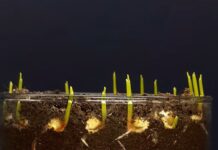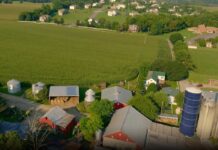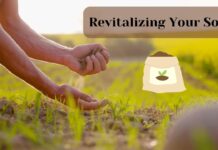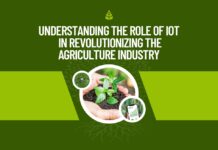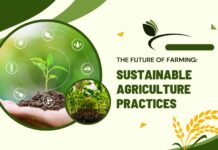
What is Organic Farming?
Organic farming is a production system which avoids the use of synthetically compounded fertilizers, pesticides, growth regulators, and livestock food additives. To the maximum extent possible, organic farming system use crop residues, animal manures, legumes, green manures, off-farm organic wastes, biofertilizers, mechanical cultivation, mineral-bearing rocks and aspects of biological control to maintain soil productivity, supply plant nutrients and to control insect, weeds and other pests.
The need for Organic Farming
With the increase in population, stable agriculture production will increase in a sustainable manner. The scientists have realized that the Green Revolution with high input use has reached a plateau and now sustained with diminishing return of falling dividends. The natural balance needs to be maintained at all cost for the existence of life and property.
Key characteristics of Organic Farming
- Providing crop nutrients indirectly using relatively insoluble nutrient sources.
- Protecting the long term fertility of soils by maintaining organic matter levels and careful mechanical intervention.
- Disease, weed, and pest control relying primarily on crop rotation, natural predators, and organic manuring.
- Indirect provision of crop nutrients using soil microorganisms.
- The impact of the farming system on the wider environment and the conservation of wildlife and natural habitats.
Step by step guide for organic food cultivation
Organic food farming is the production of food without the use of any chemicals components. Organic foods are not essentially chemical-free, but pesticides residues will be considerably lower in products with synthetic chemicals. Organic farmers and food producers grow and generate food without using any chemicals such as pesticides and fertilizers. They do not utilize genetically modified components. Organic food is formed by methods with the standards of organic farming.
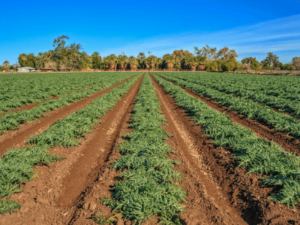
Organic food and nutrition content
Organic farming is concerned with protecting the environment and more effective with the existing ecosystem, along with conserving water, soil, and energy. Traditional food farming methods are often used as crops to prevent the soil of nutrients.
The nutritional content of organic and grown plants have the most significant differences in key vitamin and mineral content. Although the differences are small and that some organic food has:
- Lower nitrate levels
- Higher vitamin C levels
- Higher levels of selenium
Rules for Soil fertility and crop nutrient management
The basic, producers of organic crops must manage their soil and crop nutrients within the scope of the national organic program. The national organic program rules:
- Soil erosion should be minimized.
- Composts and other organic matter.
- Wastes, such as sewage sludge and certain industrial wastes.
- Non-chemical methods of soil management, such as crop rotation system, crops, and application of plant and animal materials.
- Using plant and animal materials such as raw manure to develop soil conditions.
Organic food farming methods
- Organic farmers also use crop rotation to preserve the good qualities of soils and avoid monoculture.
- Organic farming creates new living areas for wasps, bugs, beetles, and flies by giving them water and food.
- Instead of chemicals, organic farming uses a lot of organic matter to give crops the nutrients that they need to grow.
- Monoculture was the only practice used in the agriculture fields
- Weed, in simple words, is nothing but the unwanted plant that grows in.
- Weeds are controlled by using special machines. Hay, straw and wood chips are put between the rows of plants to stop weeding.
Many agricultural products can be produced in an organic way. Meat, eggs, and dairy products come from animals that are fed organically. They live in conditions that are natural to them. Vegetables and fruit are also produced with organic methods.
Categories of organic food
The organic food began with fruits and vegetables, particularly the pesticide residues in them. However, the popularity of organic foods has extended to all food grains, tea, spices, and oilseeds.
Some of the organic fruits and vegetables are given below;
- Peaches
- Grapes
- Spinach
- Cucumbers
- Tomatoes
- Peppers
- Celery
- Potatoes
Vegetables
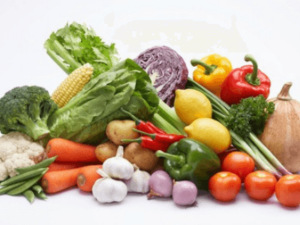
Fruits
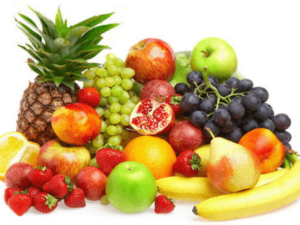
How to Grow Crops Organically?
- The crop should be produced on land without the use of synthetic substances like pesticides, fertilizers, and herbicides.
- The land should have defined boundaries and buffer zones preventing the crop with prohibited substances from the land.
- No prohibited substances can have been applied to the land before harvest.
- Soil fertility and crop nutrient management should be done in a manner to improve soil condition, soil erosion, and preventing crops, soil, and water by plant nutrients.
Some methods may include organic food cultivation are;
- Use of crop rotation
- Use of uncomposted plant material
- Use of composted animal manure with carbon to nitrogen and temperature reading.
Organic Food Production Methods
- Organic food is formed by organic food methods. These organic use of organic fertilizers composed of manure.
- Organic food is produced by crop rotation.
- Organic farming is companion planting, gardening, and agriculture. It requires crops planted in proximity for various reasons.
- Organic farming augments biological pest control that is a process of controlling pests like insects, weeds, and plant diseases.
Pest and disease management in organic food cultivation
The integrated pest management system is important for organic farming and for the land requirement. Producers want good integrated pest management to control and help prevent crop pests, weeds, and diseases.
- The crop rotation, soil requirement, and crop nutrient management practices.
- Sanitation that eliminates disease weed seeds, vectors, and pest organisms.
- Organic farming improves the productivity of the land by healing it with natural fertilizers.
- The function of nonsynthetic biological and botanical.
- Pest control such as the introduction of predators of the pest species, proper development of the habitat for natural enemies of pest and nonsynthetic controls such as traps, repellents, and lures.

